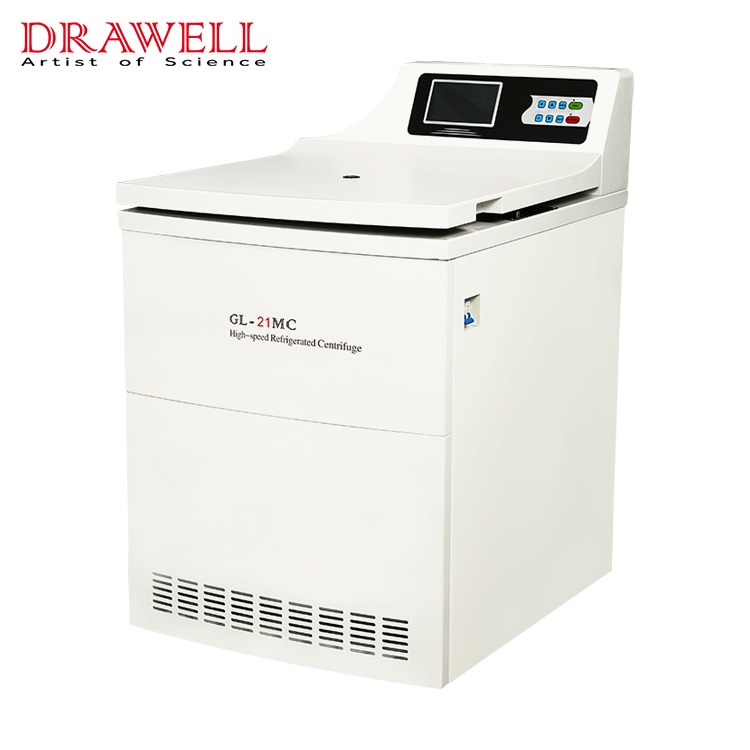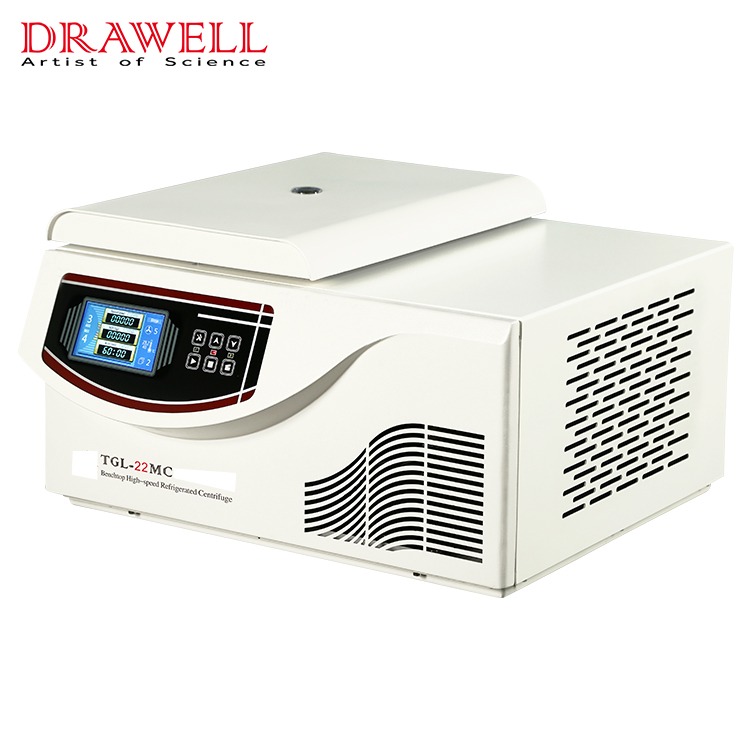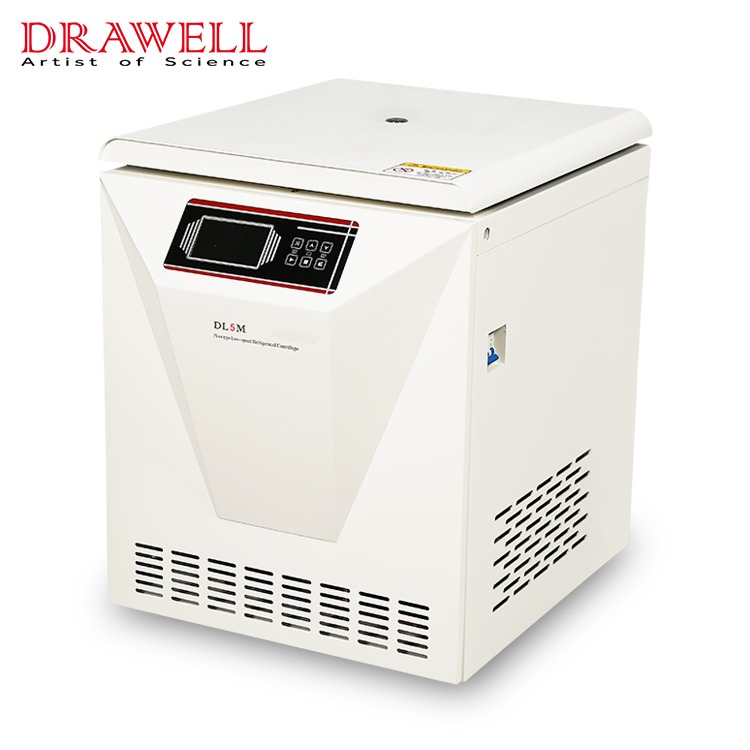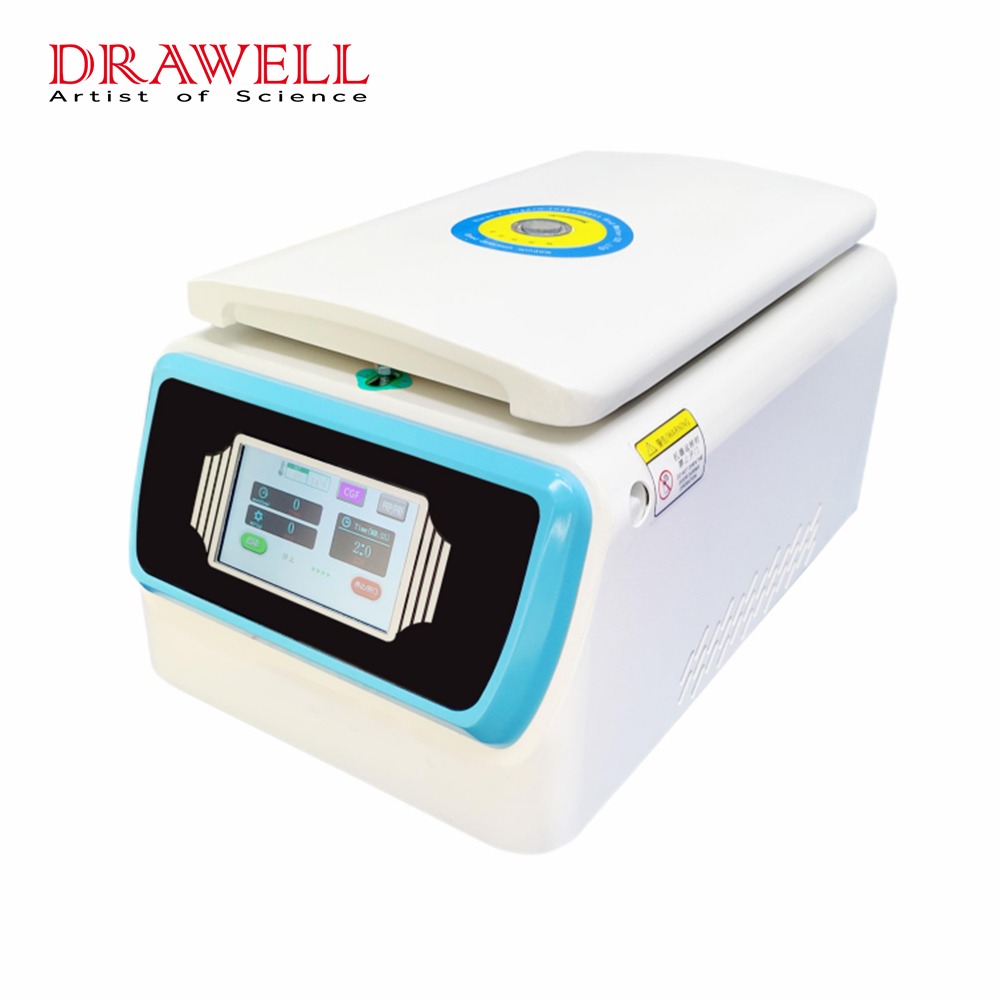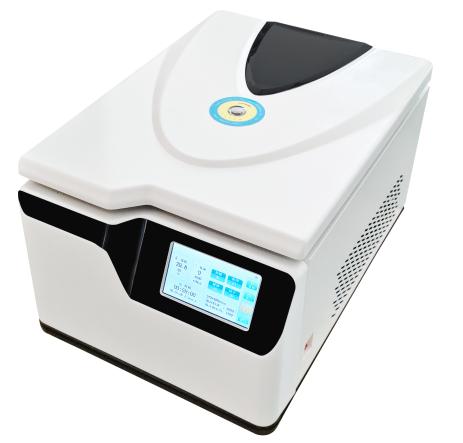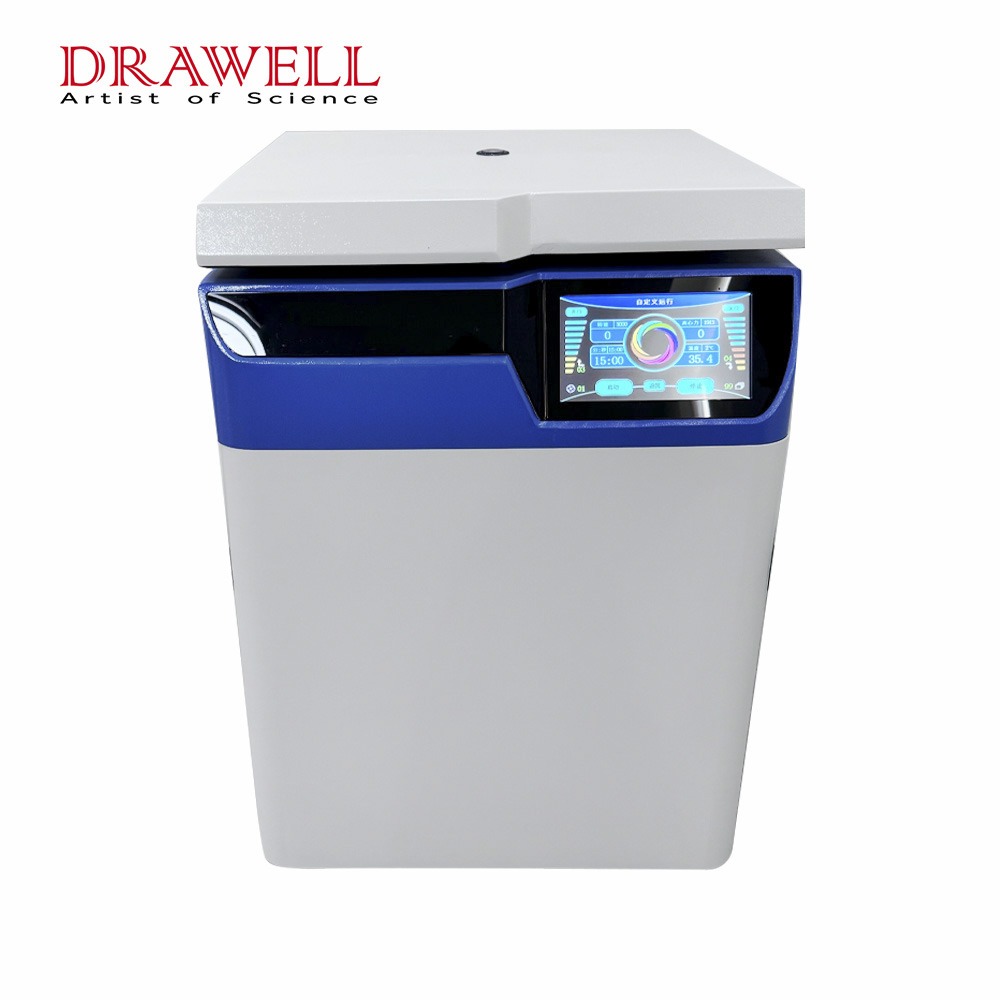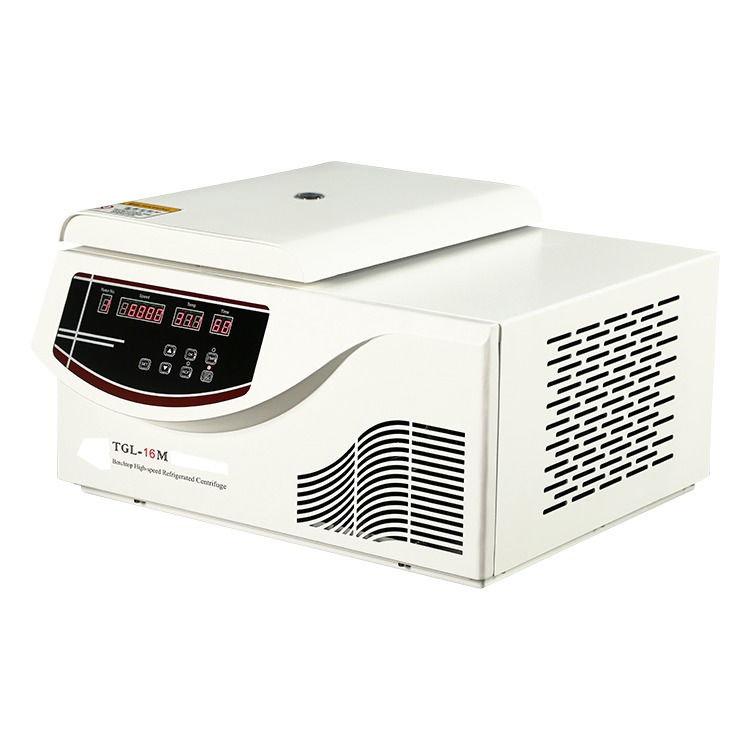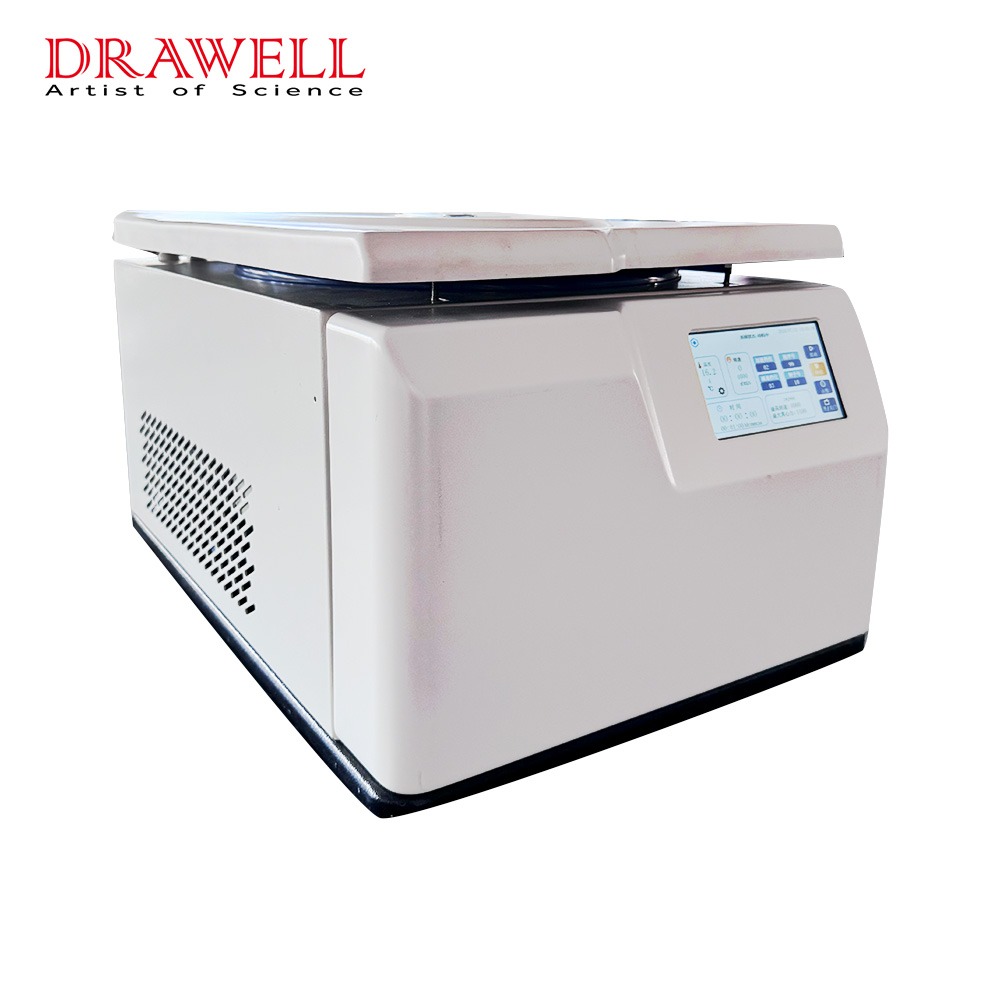Traditionally, refrigerated centrifuges have been large and stationary, posing challenges in terms of space and mobility. However, recent advancements have led to the development of compact and portable designs, making refrigerated centrifuges more versatile and accessible. This article explores the necessity, benefits and applications of compact and portable refrigerated centrifuges.
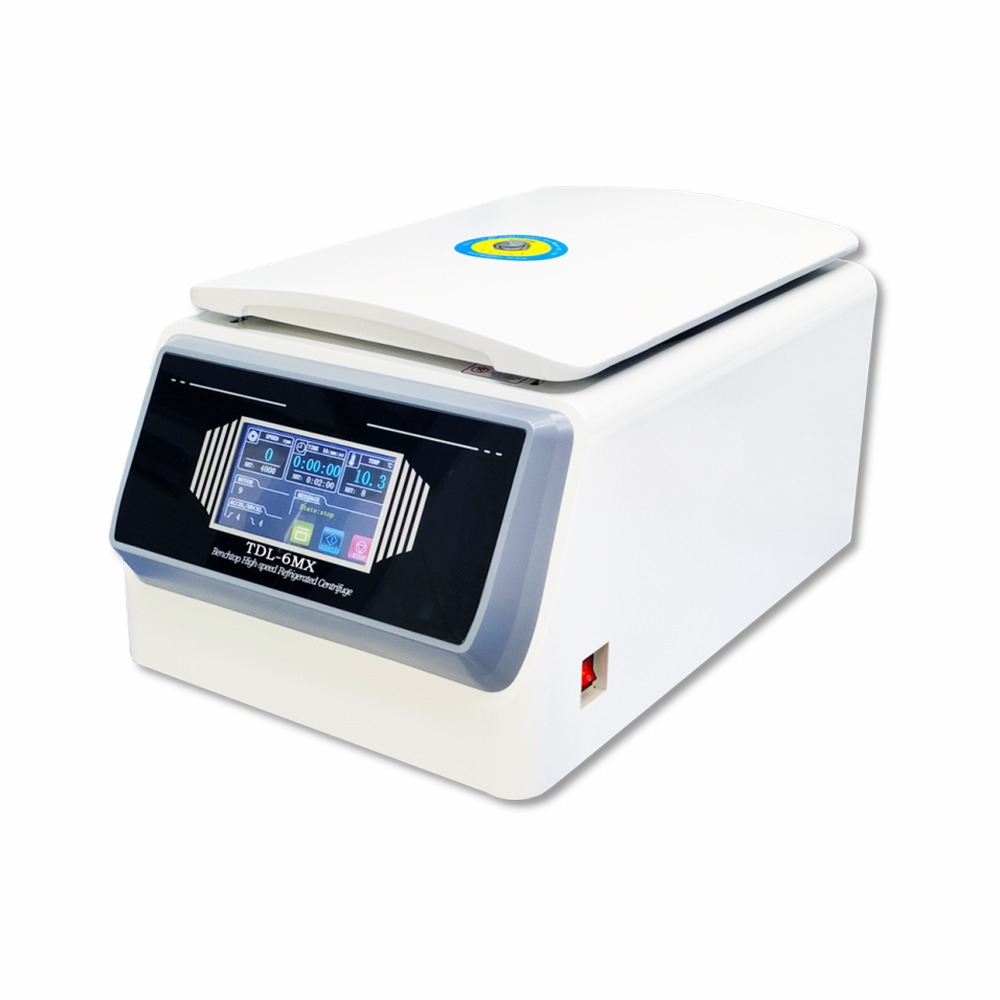
Why Need Compact and Portable Refrigerated Centrifuges
Refrigerated centrifuges are essential tools in laboratories for separating substances of different densities, preserving biological samples, and performing various analytical procedures. Lab and research facilities often face space constraints and the need for mobility. The traditional large, bulky refrigerated centrifuges can be cumbersome, occupying valuable bench space and limiting flexibility in laboratory layout. Compact and portable designs address these issues by offering the same functionality in a smaller, more adaptable form factor.
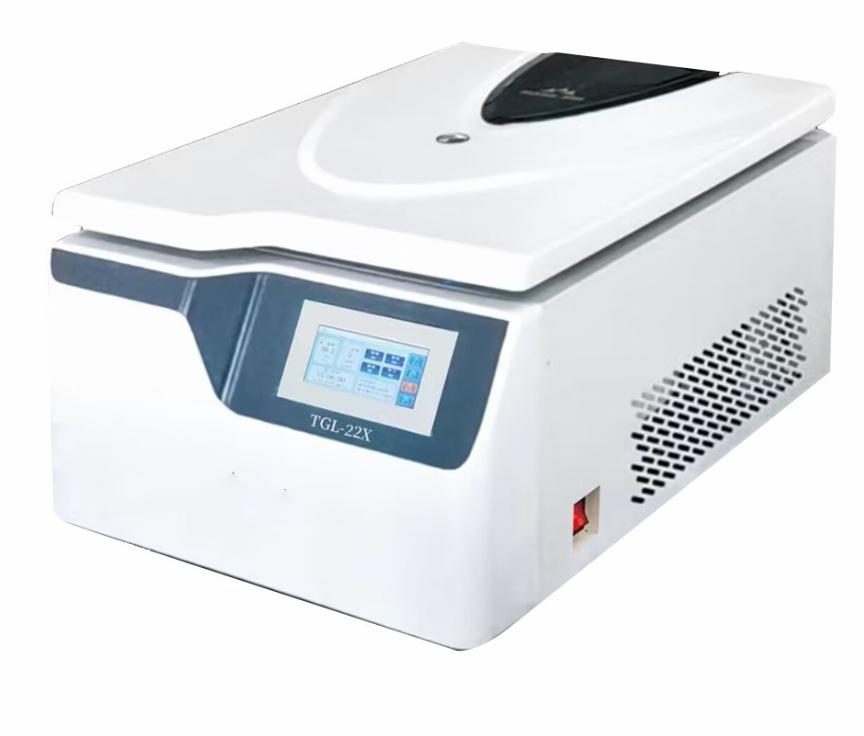
Key Features of Compact and Portable Refrigerated Centrifuges
1. Space Efficiency
- Reduced Footprint: Compact centrifuges are designed to occupy minimal bench space, allowing laboratories to optimize their workspace and accommodate more equipment.
- Stackable Designs: Some models are stackable, further enhancing space efficiency and providing convenient storage options.
2. Portability
- Lightweight Construction: Advances in materials and design have resulted in lighter centrifuges, making them easier to move within the lab or transport to different locations.
- Built-in Handles and Wheels: Many portable models come with integrated handles or wheels, facilitating easy maneuverability and transportation.
3. Advanced Cooling Systems
- Efficient Refrigeration: Despite their smaller size, compact refrigerated centrifuges are equipped with powerful cooling systems that maintain precise temperature control, ensuring sample integrity.
- Energy Efficiency: Modern designs focus on reducing energy consumption without compromising performance, contributing to sustainable laboratory practices.
4. User-Friendly Interface
- Digital Controls: Intuitive digital interfaces and programmable settings enhance ease of use and precision. Users can easily set and monitor parameters such as speed, temperature, and run time.
- Touchscreen Displays: Some models feature touchscreen interfaces for more intuitive control and easy access to advanced features and settings.
5. Safety Features
- Automatic Lid Locking: This feature ensures the lid remains securely closed during operation, preventing accidental opening and enhancing user safety.
- Imbalance Detection: Intelligent micro refrigerated centrifuge is built-in sensors detect imbalances in the rotor and automatically shut down the centrifuge to prevent damage and ensure safe operation.
- Temperature Monitoring: Continuous monitoring of internal temperature ensures that samples are maintained at the desired temperature throughout the centrifugation process.
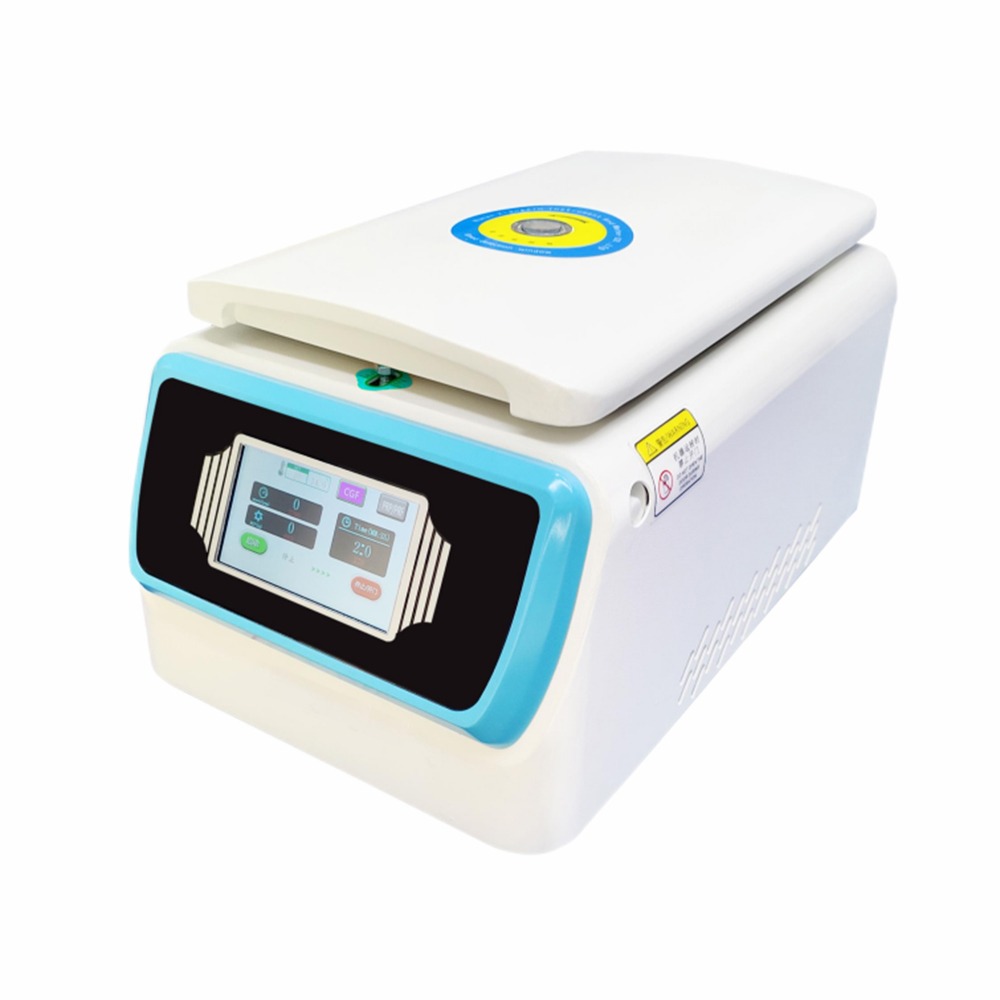
6. Versatile Rotors and Adapters
- Interchangeable Rotors: Compact centrifuges often come with a variety of rotor options, allowing users to adapt the centrifuge for different types of samples and applications.
- Adapters: A range of adapters can accommodate different tube sizes and types, providing flexibility for various experimental needs.
7. Quiet Operation
- Noise Reduction: Advanced engineering and soundproofing materials help minimize operational noise, creating a quieter laboratory environment and reducing distractions for researchers.
8. Rapid Acceleration and Deceleration
- Quick Start and Stop: Modern compact centrifuges are designed for rapid acceleration to the desired speed and quick deceleration, reducing overall processing time and increasing efficiency.
9. Compact and Robust Design
- Durability: Despite their small size, these centrifuges are built to be robust and durable, capable of withstanding the rigors of frequent use in busy laboratories.
- Stable Base: A stable and balanced base ensures the high-speed refrigerated centrifuge remains steady during high-speed operations, further enhancing safety and performance.
- Battery-Powered Options: Development of efficient battery-powered models will enhance mobility and enable centrifuge use in remote locations without reliable power sources. These models will be crucial for field research, environmental monitoring, and mobile medical diagnostics.
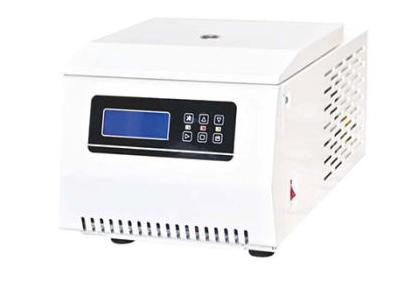
10. Connectivity and Data Management
- IoT Connectivity: Some advanced models offer Internet of Things (IoT) connectivity, enabling remote monitoring, control, and data logging for better management and analysis.
- USB and Wi-Fi Connectivity: These features allow for easy data transfer and integration with laboratory information management systems (LIMS), enhancing data management and traceability.
11. Customization and Modularity
- Modular Components: Centrifuges with modular designs will become more prevalent, allowing users to customize their equipment based on specific needs. Modular rotors, adapters, and accessories will enable laboratories to adapt centrifuges for various applications quickly.
- Scalable Configurations: Future models will offer scalable configurations that can be easily expanded or reconfigured to accommodate changing laboratory requirements. This adaptability will enhance the long-term utility of the equipment.
12. Integration with Laboratory Information Management Systems (LIMS)
- Seamless Data Integration: Future centrifuges will be designed to integrate seamlessly with LIMS, enabling efficient data transfer and management. This will facilitate better coordination and analysis of experimental data.
- Enhanced Traceability: Integration with LIMS will enhance traceability and compliance with regulatory requirements, ensuring that all data related to centrifuge operations are accurately recorded and easily accessible.

Applications of Compact and Portable Refrigerated Centrifuges
This chart illustrates the diverse and critical roles that compact and portable refrigerated centrifuges play across various fields, enhancing flexibility, efficiency, and accessibility in laboratory and field settings.
| Field | Applications | Description |
| Clinical Laboratories | Point-of-Care Testing | Enables immediate testing at the point of care, improving diagnostic speed and patient outcomes. |
| Small Clinics and Field Labs | Ideal for settings with limited space and the need for mobility, such as small clinics and field labs. | |
| Blood Sample Processing | Used for separating blood components quickly and efficiently in compact clinical settings. | |
| Research and Academia | Flexible Laboratory Layouts | Facilitates easy reconfiguration of lab setups for different experiments and workflows. |
| Student Laboratories | Suitable for educational institutions with limited space, providing hands-on learning opportunities. | |
| Cell Culture and Microbiology | Useful in cell separation, nucleic acid purification, and other microbiological applications. | |
| Biotechnology and Pharmaceutical Industries | Process Development | Assists in various stages of biotechnological and pharmaceutical research and development. |
| Quality Control | Provides mobility and flexibility for quality control processes in production environments. | |
| Protein Purification | Used in the purification and analysis of proteins and other biomolecules. | |
| Environmental and Field Research | On-Site Analysis | Allows for immediate analysis of environmental samples on-site, reducing the need for sample transport. |
| Remote Locations | Beneficial for researchers working in remote or challenging environments, providing laboratory capabilities in the field. | |
| Water and Soil Testing | Utilized in the testing and analysis of water and soil samples in various environmental studies. | |
| Food and Beverage Industry | Quality Assurance | Ensures the quality and safety of food and beverage products through various analytical processes. |
| Microbial Testing | Used for testing microbial contamination and composition in food products. | |
| Forensic Science | Crime Scene Investigation | Enables on-site analysis of forensic samples, aiding in quick and efficient crime scene investigation. |
| DNA Analysis | Facilitates DNA extraction and analysis in forensic laboratories. | |
| Veterinary Medicine | Animal Health Diagnostics | Used for point-of-care testing and sample processing in veterinary clinics and field settings. |
| Blood and Urine Analysis | Assists in the analysis of blood and urine samples from animals. |

Conclusion
Compact and portable designs in refrigerated centrifuges represent a significant advancement in lab equipment. These innovative designs address the limitations of traditional centrifuges by offering enhanced flexibility, efficiency, and accessibility. The future of laboratory centrifugation is undoubtedly compact, portable, and highly efficient, paving the way for more dynamic and versatile laboratory environments.

